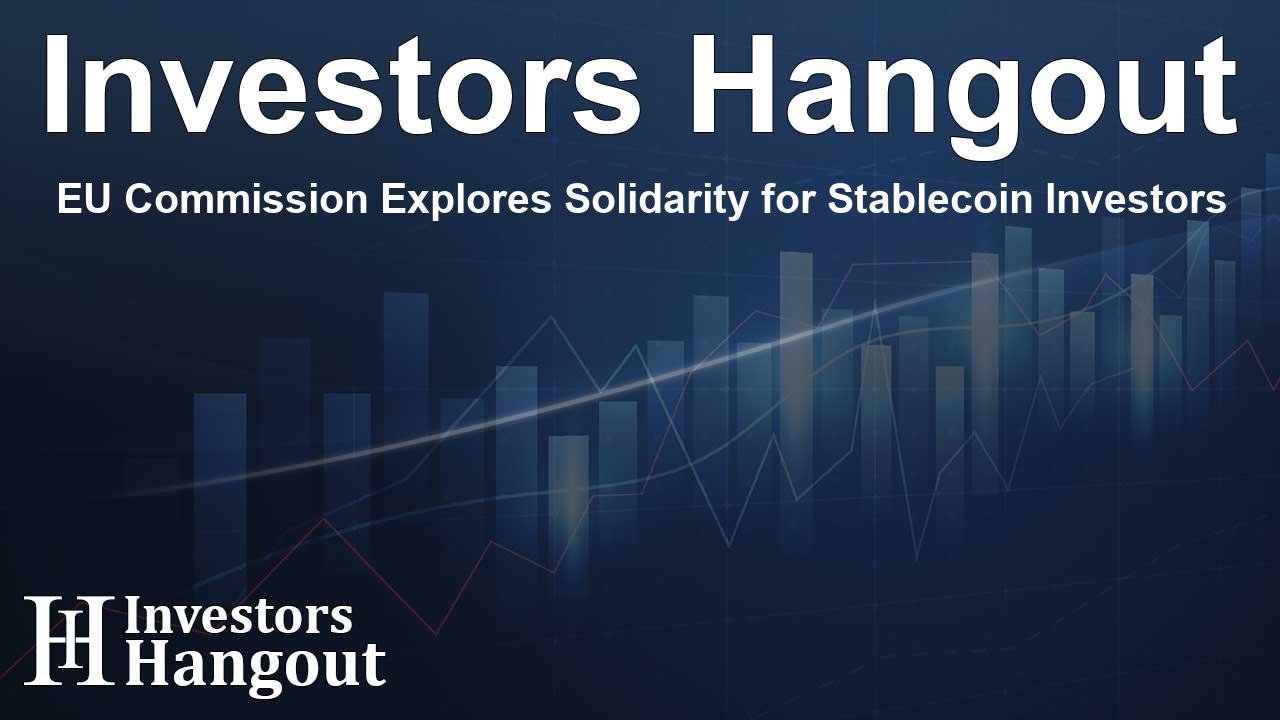EU Commission Explores Solidarity for Stablecoin Investors

Exploring the Safety Net for Stablecoin Investors in the EU
The European Commission is currently delving into how effectively EU regulations safeguard the redemption rights of investors in e-money tokens (EMTs), which are designed to maintain a fixed value against an official currency. This initiative underscores the EU's commitment to ensuring a robust framework for digital asset management within its jurisdiction.
The Role of Regulatory Authorities in EMT Management
Last year, France's banking and insurance regulator, Autorité de contrôle prudentiel et de résolution (ACPR), raised questions regarding the issuance of identical, fully fungible EMTs by both EU-licensed entities and those operating outside the EU's purview. In light of these inquiries, the European Banking Authority (EBA) was called upon to examine the technicalities surrounding this practice, ultimately referring the matter to the EU Commission for further legal interpretation.
Understanding MiCAR and Its Implications
In 2023, the EU implemented a comprehensive regulatory framework for crypto assets, known as the Markets in Crypto-Assets Regulation (MiCAR). This legislation mandates that EMT issuers undergo supervisory clearance, ensuring that they maintain sufficient reserves—typically held in the form of bank deposits. This reserve system is designed to guarantee that issuers can meet their obligations to investors when they wish to redeem their tokens.
Comparative Insight: The US Approach to Cryptocurrency Regulations
Meanwhile, across the Atlantic, the regulatory landscape in the United States is seeing significant changes. Recent statements from former President Donald Trump suggest a push to alleviate the ongoing regulatory strain on cryptocurrency firms. Concurrently, the U.S. Securities and Exchange Commission has initiated efforts to refine regulations governing digital assets by forming a specialized task force.
The Case of Circle: Operating in Dual Jurisdictions
Highlighting the complexities of operating within this regulatory environment, companies like Circle, which boasts the USDC as the second-largest stablecoin in terms of market value, navigate both EU and U.S. markets. Circle operates in the EU under its subsidiary Circle SAS, enabling it to issue USDC tokens that are interchangeable with those issued by its U.S. counterpart, Circle LLC. This dual-entity framework raises additional questions regarding regulatory adherence and investor protection.
Future Considerations for EMT Issuers in the EU
A key consideration raised by France's ACPR pertains to potential regulations surrounding the redemption process. The ACPR is assessing whether only customers based in the EU should have the option to present redemption requests to the EU entity in cases where identical tokens are issued both within the EU and externally.
Potential Implications of Regulatory Flexibility
According to finance professor Andrea Resti from Milan's Bocconi University, the flexibility inherent in MiCAR is essential to fostering innovation within the digital asset space. However, he cautions that interpretative shifts in the rules—beyond what is expressly detailed—could introduce unforeseen risks and undermine the effectiveness of these newly established regulations. Ensuring a balance between oversight and innovation will be crucial as the landscape continues to evolve.
Frequently Asked Questions
What are e-money tokens (EMTs)?
E-money tokens are digital assets pegged to a specific official currency, designed to facilitate secure and stable transactions.
Why is the EU Commission investigating EMTs?
The investigation aims to determine how current EU laws protect investor rights and the redemption processes related to EMTs.
What is the MiCAR regulation?
The Markets in Crypto-Assets Regulation (MiCAR) is a regulatory framework set by the EU to govern crypto asset operations within its jurisdiction.
How does Circle operate in the EU?
Circle operates in the EU through its subsidiary Circle SAS, allowing for the issuance of USDC tokens that are fully fungible with those issued in the U.S.
What are the implications of this investigation for stablecoin investors?
The outcome could enhance the protection of investor rights and improve the operational framework for stablecoin issuers within the EU.
About Investors Hangout
Investors Hangout is a leading online stock forum for financial discussion and learning, offering a wide range of free tools and resources. It draws in traders of all levels, who exchange market knowledge, investigate trading tactics, and keep an eye on industry developments in real time. Featuring financial articles, stock message boards, quotes, charts, company profiles, and live news updates. Through cooperative learning and a wealth of informational resources, it helps users from novices creating their first portfolios to experts honing their techniques. Join Investors Hangout today: https://investorshangout.com/
Disclaimer: The content of this article is solely for general informational purposes only; it does not represent legal, financial, or investment advice. Investors Hangout does not offer financial advice; the author is not a licensed financial advisor. Consult a qualified advisor before making any financial or investment decisions based on this article. The author's interpretation of publicly available data presented here; as a result, they should not be taken as advice to purchase, sell, or hold any securities mentioned or any other investments. If any of the material offered here is inaccurate, please contact us for corrections.